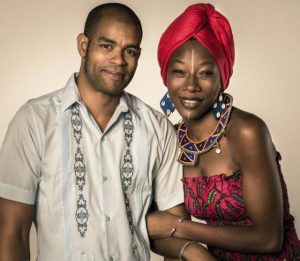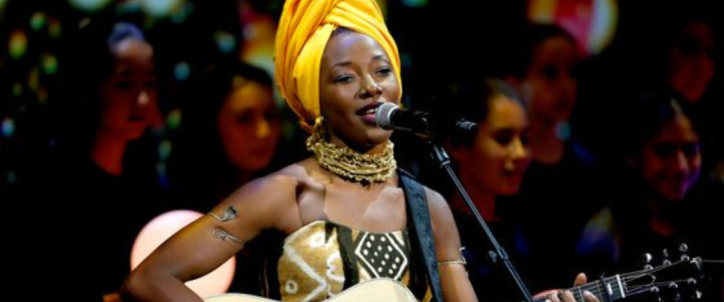
Fatoumata Diawara | A world tour!
After releasing her latest album, London Ko, on French label 3ème Bureau / Wagram Music in May this year, Fatoumata Diawara is continuing her world tour as she looks to spread her sound and sing her beliefs. By embellishing her style of folk music with jazz, hip-hop and house tones, Diawara has been tracing the outlines of what has been known since the 1990s as Afrofuturism.
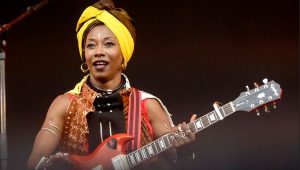
Who is Fatoumata Diawara?
To tell the truth, the artist born in 1982 hasn’t always been involved in music. Nowadays, though, it’s well and truly the art form that she invests herself in the most and the one that resonates for her beyond all borders. Although ‘Fatou’, as she’s nicknamed, hasn’t always held a mic in her hand, she’s certainly no stranger to the stage.
It all started when, having refused to go to school, Fatoumata was sent to live with her aunt in Bamako, Mali, where she would practically no longer see her parents. This whole ordeal lasted for ten years, but it wouldn’t stop her from shaping herself – quite the opposite. While she looked after her cousin at the same time as her aunt, an actress, stepped in front of the camera for the film Skirt Power, the sight of Fatou left director Adama Drabo dumbfounded, giving him no choice but to bring her into the action and give her a line in the film.
A couple of years later, another director, Cheick Oumar Sissoko, handed her a starring role in the 1999 film Genesis alongside actor Sotigui Kouyaté, who would go on to become a reference in her career. Under his guidance, Diawara moved to Paris the following year to join a theatre troupe performing Antigone, a classical play adapted by Sotigui himself.
In 2001, the troupe’s tour continued while Diawara was promised a role in an upcoming film entitled Sia, le rêve du python (‘Sia, The Dream of the Python’). After agreeing to it and despite being at the height of her fame, she was encouraged by her family to bring her acting career to an end in order to get married, finding herself forced to announce the news live on television. Despite the pressure from her parents, in 2002, she embarked on another tour with her new theatre troupe, Royal de Luxe, with whom she continued to earn leading roles for shows acclaimed by the public.
From one stage to another
To kill time before stepping on stage around the world, Diawara would often hum to herself, which didn’t escape the attentions of her director, who decided to give her singing roles in the performances themselves. Having taken these initial steps into the world of music at this point, she had no hesitation in taking to the mic at clubs across Paris when not touring with her troupe. It was there that she was spotted by Cheick Tidiane Seck, a new spiritual father for her in another art form that she would soon get to know like the back of her hand, as Seck would later ask her to be a back-up singer on various albums that he had in the pipelines. Thanks to her convincing performances, Diawara would share a stage with the artists that she had sung for, including Oumou Sangaré on the tour of her album Seya.
Finding her voice
While she had technically demoted herself from the so-called sixth major art to the fourth, Fatoumata’s motivation had skyrocketed. Having proven herself just as much on her peers’ albums as she had on stage, she was encouraged to play the guitar – and what a revelation this was. The artist quickly became self-taught and wasted no time in making use of her new passion, dedicating herself to it entirely by writing and playing every instrument on the demos that she would record.
Sangaré, the artist for whom she had previously sung, then introduced her to the World Circuit label, who would release Fatoumata’s debut album, Fatou, in 2011. The record showcases her culture with 12 tracks that transport us straight to Africa through the vocals sung in the Bambara dialect, the national language of Mali. In response to the political situation in her homeland in 2013, Diawara brought together 40 Malian and African musicians to record the track ‘Mali-ko’, a message of hope and peace. The song, released under the name ‘Voices United for Mali’, was a hit.
Following this collaboration, Diawara embarked on a world tour in order to spread her message of peace. In 2015, she teamed up with Cuban jazz pianist Roberto Fonseca, performing a series of concerts that soon led to the release of another album, entitled At Home – Live in Marciac.
Fatoumata Diawara and Roberto Fonseca
A big stage presence
The live shows came rolling in for Diawara after she featured in the Abderrahmane Sissako film Timbuktu, which won multiple awards at the 2015 Césars as well as being in the running at the Oscars and the Festival de Cannes. She would also co-produce the song ‘Timbuktu Fasso’ with composer Amine Bouhafa a year before starring in the documentary Mali Blues, which discusses the influence of music on both body and soul and in which Diawara once again shares a message of hope.
Over the last five years, the artist has also collaborated with the highly popular -M- – a.k.a. Matthieu Chedid, the son of Louis Chedid – both in the recording studio and on tour. In fact, the man himself makes a guest appearance on Diawara’s latest album, London Ko, with the French multi-instrumentalist featuring on the song ‘Massa Den‘. On this record, Diawara also joins forces with Gorillaz co-creator Damon Albarn among others.
With Fatoumata Diawara currently on a world tour as she shares her hope and spreads her love for and knowledge of African folk music, check out her upcoming dates below.
In the meantime, why not give her a listen now on What the France’s ‘Around the World‘ playlist?
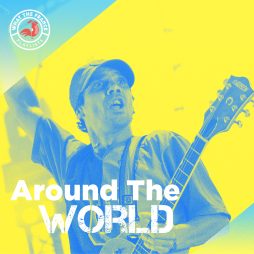
Around The World
Explore the latest world music hits made in France. Follow us for weekly updates ! Listen nowSee also
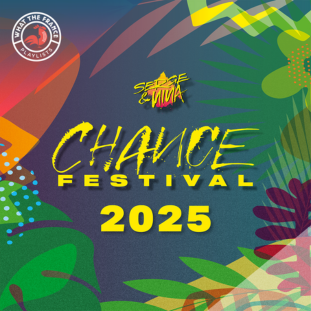 CHANCE Festival 2025
CHANCE Festival 2025: French Pop Takes Over Düsseldorf! On August 30, 2025, the CHANCE Festival returns for its 5th edition in Düsseldorf’s Hofgar...
Event
CHANCE Festival 2025
CHANCE Festival 2025: French Pop Takes Over Düsseldorf! On August 30, 2025, the CHANCE Festival returns for its 5th edition in Düsseldorf’s Hofgar...
Event
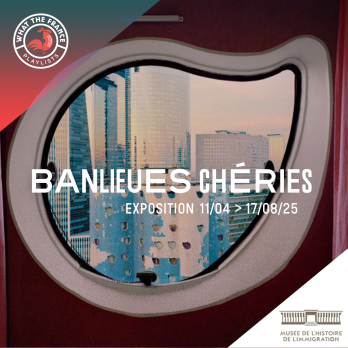 Palais De La Porte Dorée | Discover the official playlist of the “Banlieues chéries” exhibition!
From April 11 to August 17, 2025, the Palais de la Porte Dorée in Paris will host the exhibition “Banlieues chéries,” which offers an in...
Palais De La Porte Dorée | Discover the official playlist of the “Banlieues chéries” exhibition!
From April 11 to August 17, 2025, the Palais de la Porte Dorée in Paris will host the exhibition “Banlieues chéries,” which offers an in...
